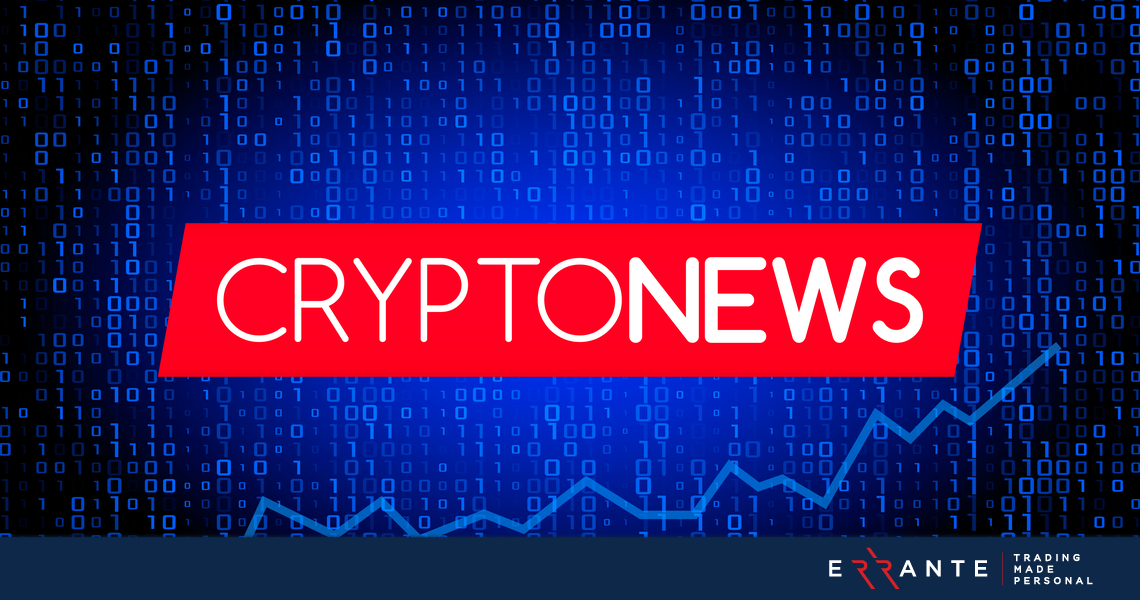The Duty of copyright News in Predicting Future copyright Trends
The Duty of copyright News in Predicting Future copyright Trends
Blog Article
Discovering the Influence of Regulatory Adjustments and Technological Innovations on Today's Digital Currencies Headings
The junction of regulative modifications and technical innovations is essentially altering the landscape of electronic money, motivating a re-evaluation of their role in the global economic situation. Regulatory bodies, such as the SEC and CFTC, are actively influencing just how digital possessions are identified, while new modern technologies are improving purchase performances and security procedures.
Current Regulatory Landscape
Following rapid improvements in electronic currencies, the present governing landscape is evolving to address the complexities and obstacles positioned by these developments. Governments and regulatory bodies worldwide are grappling with how to efficiently oversee this burgeoning market, which frequently transcends nationwide borders.
Secret regulatory strategies consist of the establishment of frameworks that define digital money, making certain consumer protection and preventing immoral tasks such as money laundering and fraud. In the United States, firms like the Stocks and Exchange Compensation (SEC) and the Commodity Futures Trading Payment (CFTC) are proactively engaging in discussions to make clear the category of various digital properties and their regulative implications.
In A Similar Way, the European Union is advancing its Markets in copyright-Assets (MiCA) regulation, which intends to produce a cohesive governing atmosphere across participant states. Nations like China have chosen stricter procedures, including outright restrictions on certain copyright tasks.
As this governing landscape remains to develop, it will certainly be vital for stakeholders, including companies and consumers, to remain educated and adjust to the altering setting to minimize risks while capitalizing on chances within the electronic currency round.
Key Technological Innovations
Countless technological technologies are improving the landscape of digital currencies, dramatically improving their capability and protection. One of one of the most pivotal improvements is the development of blockchain modern technology, which supplies a decentralized journal that makes sure openness and immutability of purchases. copyright news. This technology not only minimizes the threat of scams however additionally enables real-time purchase verification, promoting user trust fund
Furthermore, the appearance of wise contracts has transformed exactly how agreements are implemented within digital money ecosystems. These self-executing agreements assist in automatic purchases, removing intermediaries and decreasing costs linked with typical agreement enforcement. Additionally, innovations in cryptographic methods improve the security of digital budgets, protecting individuals' possessions from potential cyber threats.
Another notable technology is the assimilation of expert system in deal surveillance and fraud detection, making it possible for systems to identify suspicious tasks promptly. The introduction of Layer 2 scaling remedies, such as the Lightning Network, addresses scalability concerns, allowing for faster and more affordable deals on networks like Bitcoin.

Influence on Market Dynamics
Technical advancements in electronic currencies have not just improved performance and security yet have also significantly transformed market dynamics. The introduction of blockchain modern technology has boosted openness and lowered transaction costs, resulting in better performance in trading and investment. This has actually urged an extra varied variety of individuals, from retail financiers to institutional gamers, to engage with digital currencies, thus enhancing market liquidity.
Moreover, the development of decentralized money (DeFi) systems has disrupted typical monetary systems, providing users with different avenues for lending, borrowing, and trading. This change has actually fostered a competitive environment where traditional economic organizations are obliged to innovate here or take the chance of obsolescence (copyright news). With the increase of stablecoins, which supply cost security among volatility, traders can now perform transactions with lowered danger, additional influencing market habits
In addition, the integration of expert system and equipment discovering in trading strategies enables much more sophisticated market analysis and anticipating modeling. Consequently, capitalists are better outfitted to react to market variations, creating a much more dynamic trading atmosphere. Jointly, these advancements are reshaping the landscape i was reading this of digital money, causing an extra interconnected, competitive, and reliable market.

Worldwide Point Of Views on Regulation
Regulative techniques to electronic money differ dramatically throughout the globe, frequently showing differing economic priorities, cultural mindsets towards technology, and degrees of technical fostering. In the USA, governing bodies such as the SEC and CFTC face specifying the lawful condition of cryptocurrencies, focusing on capitalist security and market stability. The European Union is progressing detailed regulative frameworks like the Markets in copyright-Assets (MiCA) proposition, intending to create a unified approach that cultivates advancement while making sure consumer safety.
In comparison, countries like China have actually embraced a straight-out restriction on cryptocurrencies, prioritizing financial control and financial stability over innovation. Alternatively, nations such as El Salvador have actually accepted Bitcoin as lawful tender, showcasing a bold commitment to monetary inclusion and financial modernization.
Developing countries often locate themselves navigating an intricate landscape, balancing the demand for regulation with the prospective advantages of digital money in driving economic development. On the whole, the global regulative environment stays fragmented, with recurring dialogues and adjustments as federal governments seek to strike an equilibrium in between fostering technology and mitigating risks associated with digital currencies. This vibrant landscape underscores the requirement for recurring worldwide participation and dialogue among regulatory authorities.
Future Trends in Digital Currencies
As regulative frameworks additional reading develop, the landscape of electronic money is poised for considerable makeover. Emerging patterns show a merging of regulatory clearness and technological innovation, which will certainly shape the future of digital money. Central Financial Institution Digital Currencies (CBDCs) are anticipated to acquire traction as governments discover their possible to boost financial policy efficiency and financial incorporation.
Concurrently, decentralized finance (DeFi) systems are anticipated to challenge typical banking systems, using innovative financial services that operate without intermediaries. This shift can cause a re-evaluation of existing policies to fit the one-of-a-kind qualities of DeFi while ensuring consumer defense and systemic security.
Furthermore, the assimilation of expert system and artificial intelligence in copyright trading and threat assessment will certainly redefine investment methods and market dynamics. As digital money end up being significantly conventional, issues such as cybersecurity dangers and regulatory conformity will certainly require durable solutions.
Finally, public understanding and adoption will play a critical role in figuring out the trajectory of electronic currencies. Boosted awareness and education and learning pertaining to the benefits and risks connected with digital money will certainly drive approval, inevitably influencing the regulative landscape and market advancements in the years to come.
Final Thought

Report this page